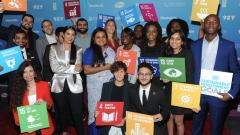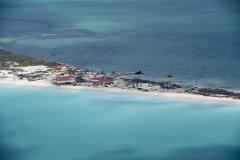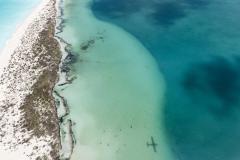- عربي
- 中文
- English
- Français
- Русский
- Español
Welcome Remarks at the 2019 Global Platform for Disaster Risk Reduction
Remarks by Ms. Fekitamoeloa Katoa ‘Utoikamanu, High Representative for the Least Developed Countries, Landlocked Developing Countries and Small Island Developing States
15 May 2019
Geneva, Switzerland
Excellencies,
Distinguished delegates,
Ladies and gentlemen,
It is indeed a pleasure to be here at this welcome session of the Sixth Global Platform on Disaster Risk Reduction, and to share with you the key outcomes of the fourth meeting of the Small Island States Resilience Initiative Practitioners’ Network (SISRI), which was held in Geneva, on May 12-13, 2019. The meeting was jointly organized by the United Nations Office for Disaster Risk Reduction (UNDRR), the World Meteorological Organization (WMO), and the United Nations Office of the High Representative for the Least Developed Countries, Landlocked Developing Countries and Small Developing States (UN-OHRLLS), and funded by the European Commission through the ACP-EU Natural Disaster Risk Reduction Program managed by GFDRR.
Excellencies, Ladies and Gentlemen, By way of background, SISRI is an initiative of the Global Facility for Disaster Reduction and Recovery (GFDRR), managed by the World Bank, and works with small island states to reduce climate and disaster risks to their populations, assets, ecosystem and economies. It was launched in 2014 as a response to small island States’ calls for more adequate, predictable and effective flows of finance from the international community through technical assistance, implementation support, knowledge sharing, innovations and partnerships. One of the main pillars of this initiative is to strengthen a community of practice for small islands states through the SISRI Practitioners Network. For this meeting, more than 60 development practitioners from 29 small island developing states (SIDS) came together under the theme, “Bringing resilience to scale in Small Island Developing States”.
Located in some of the most disaster-prone regions in the world, SIDS are among the most vulnerable to natural hazards and the impacts of climate change. Eager to share best practices and lessons learned for enhancing climate and disaster resilient development, participants came together with a view to: exchanging experiences and good practices developed by small island states to make development climate and disaster resilient; facilitating peer-to-peer learning to support effective design and implementation of climate and disaster resilient investments and policy interventions; and further strengthening the community of practice between small island states’ practitioners.
Through presentations and lively discussions, the participants shared national and regional experiences and solutions to important challenges, including how to select high impact interventions and investments when there are many national sectoral and cross-sectoral priorities. Participants also considered evidence-based decision-making 3 tools such as São Tomé and Príncipe’s spatial risk information and the Pacific Risk Information System, which are enabling SIDS to better understand and analyze their respective climate and disaster risk profiles, thus helping guide their resilience planning and investments.
They also presented and discussed a range of issues, from the prioritization of climate and disaster resilient activities to be scaled-up, to mainstreaming resilience in public financial management and key areas/sectors such as built environment, urban, transport and other infrastructure and coastal management. Other key areas of the discussion included the role of the private sector through the Caribbean Climate-Smart Accelerator, and the importance of community-led partnerships and gender-responsive approaches to building resilience. The latter generated a great discussion on vulnerability, marginalization and equal opportunities in line with the theme of this year’s Global Platform – The Resilience Dividend: Towards Sustainable and Inclusive Societies. Oxfam’s country director in the Solomon Islands, Ms. Dolores Devesi, in her excellent intervention, stressed the importance of women’s leadership in disaster risk reduction.
Across the board, the SIDS acknowledged that the twin challenges of a changing climate and intensifying disaster risk would not be easy to overcome. Yet there was also consensus that by exchanging experiences, ideas and lessons learned from efforts already underway, a resilient future for the SIDS would be much more achievable. The potential for replication of some of the solutions shared led participants to call for more frequent formalized peer-to peer learning opportunities and for support to South-South visit exchanges.
These very important outcomes are intended to feed into the discussions here at the Global Platform, as well as other meetings being held later this year in the context of the United Nations General Assembly. These meetings include the SecretaryGeneral’s Climate Action Summit, the SDG Summit, a High-Level Dialogue on Financing for Development, and last but not least the High-Level Mid-Term Review of the SAMOA Pathway.
My Office, UN-OHRLLS, remains highly committed to ensuring that these matters are given the prominence they deserve in the context of these important meetings, and as we move forward in support of more climate and disaster resilient development in SIDS. Thank you very much.





